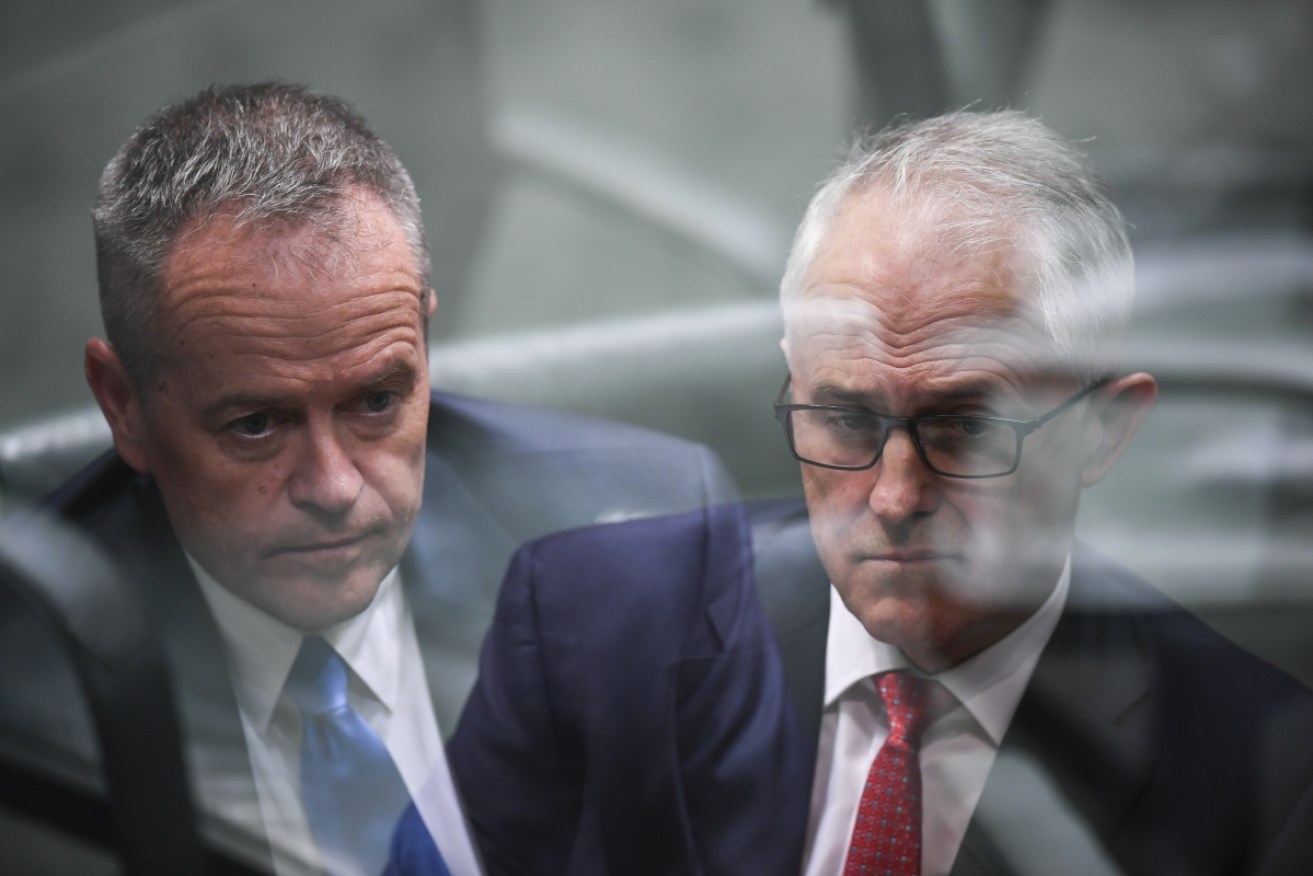Jump to the left presents existential crisis for Australia’s major parties


The changing electorate is as much a problem for Bill Shorten as it is for the PM. Photo: AAP
Malcolm Turnbull’s Coalition and indeed Bill Shorten’s Labor Party are grappling with a serious existential problem – the community has jumped to the left, while the major parties are stepping to right.
Last month, two former staffers of one-time PM Kevin Rudd published research showing that Australians believed their values had moved to the left over the past 20 years.
Drawing on research done by the Australian Election Study, the percentage of voters describing themselves as ‘left’ had increased by almost 12 per cent to 31.4 per cent by 2016, with a corresponding decline in the number who described themselves as ‘centre’ to 41.6 per cent.
The proportion of voters who saw themselves as being on the ‘right’ of the political spectrum hovered around 25-27 per cent over the entire period, although this did drop to 24 per cent in 2010.
This move to the left goes some way to explaining why Labor is currently ahead in the published opinion polls: the opposition has shaped much of its policy agenda to respond to the left-wing values of this growing cohort of voters. Perhaps it also helps to explain the nation’s widespread support for marriage equality.
But this shift also holds considerable danger for Labor, evidenced by its internal struggles over asylum seeker policy and the proposed Adani coal mine.
The challenge for Labor
These struggles arise mainly because the party’s grassroots membership is currently more left-wing than its parliamentary wing, where the right factions have the majority. That’s how Labor ended up with the right-winger Bill Shorten as leader instead of the left-winger Anthony Albanese.
Labor’s right wing lost its majority at the party’s last national conference in 2015, but according to a report this week in The Guardian, Labor’s right is confident it has the numbers for the next national conference, to be held in July this year.
If the Labor right does prevail at the national conference, voters should expect to see no change to those opposition policies that left-leaning voters have found to be wanting, for example on asylum seekers and Adani.
A re-ascendant right within Labor could also result in attempts to shift other opposition policies back towards the right.
In so doing, Labor would risk reviving the Greens vote, which has plateaued since the opposition has taken on a more left-wing agenda.
Liberal moderates under threat

Jane Prentice during happier times in 2010. Photo: AAP
However, Labor’s marauding right is less obvious than its rampaging Liberal counterpart, which is currently trying to knock off as many moderates (or sympathisers with the moderates) as possible before the federal election.
That’s where the demise of the very junior minister and moderate Jane Prentice comes in. Given the Coalition already has an appallingly low number of female MPs, it’s not surprising the switch was seen as further evidence of the government’s ‘women problem’.
Ms Prentice’s successor Julian Simmonds may well be a man, but more importantly he’s aligned with the hard right in the Queensland LNP.
Looking further south, the Herald Sun reported this week that, following the right’s recent takeover of the Victorian Liberal Party, moves were underway to dump moderate MPs such as minister Kelly O’Dwyer and backbenchers Jane Hume, Tim Wilson and senator James Paterson.
Similar moves are also reportedly afoot in the South Australian Liberals, who don’t seem to have a problem pre-selecting women as long as they’re conservatives, such as the member for Boothby, Nicolle Flint, and the candidate for Mayo, Georgina Downer.
However, according to The Australian, the pre-selection of South Australian Turnbull supporter Anne Ruston is reportedly under threat from a young, male contender who is backed by ‘staunch conservatives’ in the SA Liberals.
Despite the best efforts of former PM Tony Abbott and his dwindling crew, the NSW Liberal Party has so far managed to withstand the conservative insurgency.
It’s clear there are strong moves by the right to reassert and increase its power within the party machines and parliamentary wings of both the Liberal and Labor parties. This presents a greater existential threat than any ‘women problem’.
If the right succeeds, it will draw either one or both of the major parties away from the growing cohort of left-thinking voters, as well as the vast majority of the community who do not see themselves as right-wingers.
Stepping further to the right could lead to the demise of the major parties as we currently know them.








